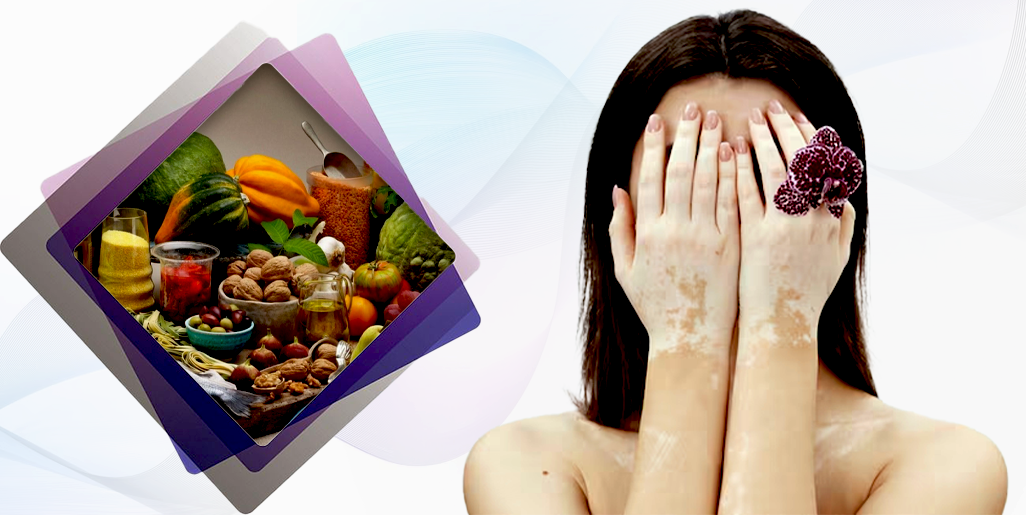Make An Appointment
For emergency Case
Booking A visit
How Does a Healthy Diet Help Vitiligo Patients?
A diet can effectively control an autoimmune disease known as vitiligo, which results in loss of skin pigmentation. Nutritionally dense foods, including anti-inflammatory and antioxidant food products, are essential to increase immunity and minimize inflammation. Diets high in fruits, vegetables, nuts, seeds, and omega-3 fatty acids are considered beneficial for health in general and may benefit the skin as well. Though it cannot be treated by diet, the application of complementary therapies might be superior to its treatment if applied. Individuals who are keen on seeking enhancement in their health and well-being must know how diet interacts with vitiligo.
Why Does Vitiligo Affect Diet?
White spots are called vitiligo when your immune system mistakenly attacks the melanocyte cells that produce pigment in your skin. While diet does not have a direct relationship with loss of pigmentation, it is good to have nutrient-dense foods to improve healthy skin, reduce oxidative stress, and keep the immune system in balance; this is especially helpful for patients with vitiligo.
What You Should Eat
A diet high in antioxidants, vitamins, and minerals that support skin health and immunological balance should be your main priority if you have vitiligo. The following are some excellent choices for your plate:
Antioxidant-rich foods: These reduce oxidative stress, which worsens vitiligo. Include colorful vegetables such as
- Spinach
- Kale
- Broccoli
and fruits like oranges, blueberries, and strawberries.
Foods High in Copper: The production of melanin requires copper. Increase your consumption of lentils, chickpeas, cashews, almonds, and seeds.
Vitamin B12 & Folate: Vitamin B12 and folate are some nutrients that one should have for a strong immune system and healthy skin, with fish, eggs, leafy greens like kale and spinach, and fortified cereals.
Iron & Zinc-rich Foods: For skin cells receiving oxygen, take iron. With the help of zinc, build up your immunity by taking in foods like
- Tofu
- Legumes
- Pumpkin seeds
- Lean meats that contain fish and chicken.
Good Fats: Omega-3 fatty acids are anti-inflammatory. Add flaxseeds, walnuts, and fatty fish (like mackerel and salmon).
Foods Not to Eat
Some foods are recommended to be avoided or taken in limited quantities since they may trigger or worsen oxidative stress or cause immunological reactions:
Processed foods: These often contain unhealthy fats and harmful additives that can fuel inflammation. Avoid fast meals, fizzy drinks, and packaged snacks.
Too Much Citrus Fruit: While citrus fruits are rich in vitamin C, they may at times increase the sensitivity of patients suffering from vitiligo. Try reducing your intake of grapefruits, lemons, and limes if your symptoms start to deteriorate.
Alcohol & Caffeine: Alcohol and caffeine interfere with the body’s normal cleansing mechanisms and are a source of stress, which contributes to the onset of vitiligo.
Gluten: Some claim to do well when cutting back on gluten in the diet. Not always the case, however, if you think this is a sensitivity for you, you might consider lowering your intake of rye, barley, and wheat.
Nightshade vegetables: Some people with vitiligo may have immunological responses to tomatoes, peppers, and eggplants. Pay attention to how these foods affect you.
A Role of Stem Cell Therapy in Treating Vitiligo
While dietary control plays a part in managing vitiligo, stem cell therapy directly focuses on the cause of the disease, repairing melanocytes and returning pigmentation. Professional consultations on whether stem cell therapy is suitable for an individual are provided by Global Stem Cell Care. Individualized treatments with counseling guide patients toward advanced therapies and alternative care for permanent relief.
For Consultation
If you’re not sure if you qualify for stem cell therapy to address your vitiligo, this facility offers consultation services and personalized regenerative treatment planning. Discuss how stem cell therapy and diet change can improve the skin condition with one of their experts. Got a question? They are prepared and willing to guide you through the process and choose the treatment course that will help you gain better skin pigmentation and general health.
